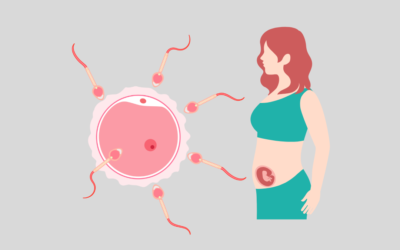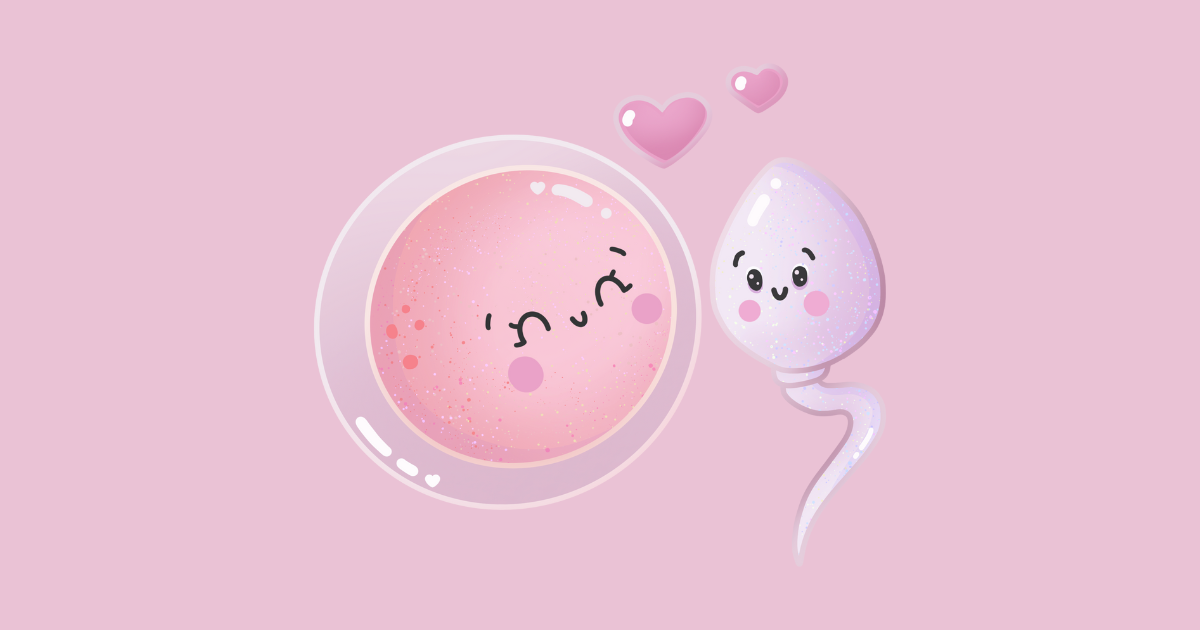Egg quality is one of the most important fertility factors. Healthy, high-quality eggs increase the chances of conception and support a healthy pregnancy. While age and genetics play a role in egg quality, nutrition, and lifestyle choices can significantly impact reproductive health. Eating the right foods provides the nutrients necessary for cellular repair, hormonal balance, and reducing oxidative stress, all of which improve egg quality.
In this blog, we’ll discuss the Best 10 Foods to Improve Egg Quality scientifically proven to enhance egg quality and how they work to support fertility.
Table of Contents
What is Egg Quality in Females?
Egg quality refers to the health and viability of a woman’s eggs, which play a crucial role in fertility. High-quality eggs have the proper chromosomal content and are capable of developing into healthy embryos after fertilization. Poor egg quality, on the other hand, may result in difficulty conceiving, miscarriages, or chromosomal abnormalities in the embryo.
Egg quality is determined by factors such as:
- The egg’s ability to be fertilized.
- The potential for proper chromosomal division during cell division.
- Its ability to develop into a healthy embryo.
Signs of Bad Egg Quality
Poor egg quality can be subtle, but some signs may indicate an issue:
- Difficulty Conceiving: If you’ve been trying to conceive for a prolonged period without success, poor egg quality may be a factor.
- Irregular Menstrual Cycles: Hormonal imbalances caused by poor ovarian function can lead to irregular cycles.
- Recurrent Miscarriages: Poor egg quality can result in chromosomal abnormalities, leading to pregnancy loss.
- Age-related Fertility Decline: Egg quality tends to decrease as women age, particularly after 35.
- Low AMH Levels or High FSH Levels: Blood tests showing low Anti-Müllerian Hormone (AMH) or high Follicle-Stimulating Hormone (FSH) levels can indicate reduced ovarian reserve and egg quality.
If you’re experiencing any of these signs, consulting a fertility specialist can help assess your egg quality and provide personalized guidance.
Factors That Affect Egg Quality
1. Age
Age is the most significant factor influencing egg quality. Women are born with a finite number of eggs, and both the quantity and quality of eggs decline with age. This decline becomes more pronounced after age 35 and accelerates after age 40.
2. Oxidative Stress
Exposure to free radicals can damage the DNA and mitochondria of egg cells. Oxidative stress is caused by factors like smoking, pollution, poor diet, and excessive alcohol consumption.
3. Hormonal Imbalances
Conditions like Polycystic Ovary Syndrome (PCOS), thyroid disorders, and irregular hormone levels can negatively impact egg maturation and quality.
4. Lifestyle Factors
- Smoking: Damages the DNA in eggs and accelerates ovarian aging.
- Alcohol: Excessive alcohol consumption can disrupt hormonal balance.
- Obesity or Being Underweight: Both extremes can affect hormonal levels and egg quality.
5. Environmental Toxins
Exposure to pesticides, heavy metals, and chemicals found in plastics (e.g., BPA) can disrupt reproductive hormones and damage eggs.
6. Diet and Nutrition
Poor nutrition, vitamin deficiencies (e.g., vitamin D, folate), and a lack of antioxidants can negatively affect egg quality.
7. Stress
Chronic stress can lead to elevated cortisol levels, which interfere with reproductive hormone regulation and egg development.
Importance of Improving Egg Quality
Improving egg quality is essential for several reasons:
- Increases Chances of Conception: Healthy eggs are more likely to be fertilized and develop into embryos.
- Reduces Risk of Chromosomal Abnormalities: High-quality eggs are less likely to have genetic defects that can result in miscarriages or developmental issues.
- Improves Success in Fertility Treatments: For those undergoing procedures like IVF, egg quality plays a critical role in the success of treatment.
- Supports Healthy Pregnancy Outcomes: Healthy eggs contribute to a lower risk of pregnancy complications.
How to Improve Egg Quality
- Adopt a Balanced Diet: Include fertility-boosting foods like leafy greens, berries, nuts, salmon, and whole grains.
- Maintain a Healthy Lifestyle: Exercise regularly, quit smoking, and reduce alcohol consumption.
- Take Fertility Supplements: Coenzyme Q10 (CoQ10), folic acid, and omega-3 fatty acids are known to support egg health.
- Reduce Stress: Practice mindfulness, yoga, or meditation to lower stress levels.
- Limit Exposure to Toxins: Use organic products, avoid plastics with BPA, and reduce exposure to environmental pollutants.
- Stay Hydrated: Proper hydration supports good blood flow to the reproductive organs.
- Consult a Specialist: Seek medical advice if you suspect hormonal imbalances or other underlying conditions affecting egg quality.
Best 10 Foods to Improve Egg Quality
1. Berries
Berries such as blueberries, strawberries, and raspberries contain antioxidants like vitamin C, quercetin, and resveratrol. These antioxidants help protect eggs from oxidative stress, a major contributor to egg damage. Free radicals, produced by environmental toxins, stress, and natural aging, can harm egg cells, but antioxidants neutralize their effects.
Nutritional benefits for fertility:
- Improves ovarian health.
- Supports hormonal balance.
How to include: Add berries to smoothies, yogurt, or oatmeal, or enjoy them fresh as a snack.

2. Avocados
Avocados are an excellent source of monounsaturated fats, which are crucial for hormone production and maintaining cell membrane integrity. They are also rich in folate, a vital nutrient for egg maturation and DNA repair. Folate ensures proper chromosomal division in eggs, reducing the risk of abnormalities.
Nutritional benefits for fertility:
- Promotes hormonal balance.
- Reduces inflammation in reproductive organs.
How to include: Use avocado in salads, on toast, or as a creamy base for dips and spreads.

3. Salmon
Salmon is one of the richest sources of omega-3 fatty acids, which are critical for improving blood flow to the ovaries and reducing inflammation. Omega-3s also play a role in regulating hormones that control ovulation. Additionally, salmon provides vitamin D, which is essential for ovarian function and egg maturation.
Nutritional benefits for fertility:
- Enhances blood flow to reproductive organs.
- Reduces oxidative damage to eggs.
How to include: Grill or bake salmon for dinner or add smoked salmon to salads or sandwiches.

4. Dark Leafy Greens
Vegetables like spinach, kale, Swiss chard, and arugula are packed with essential nutrients, including iron, folate, calcium, and vitamins A and C. Folate, in particular, plays a key role in preventing chromosomal abnormalities during egg development.
Nutritional benefits for fertility:
- Supports healthy ovulation.
- Promotes proper cell division in eggs.
How to include: Add greens to smoothies, sauté them as a side dish, or incorporate them into soups and salads.

5. Eggs
Eggs are considered a superfood for fertility due to their high choline content. Choline supports healthy brain development in embryos and helps improve egg quality by protecting against oxidative stress. Additionally, eggs are a good source of protein, which is essential for hormonal health.
Nutritional benefits for fertility:
- Promotes egg maturation.
- Enhances cell membrane integrity.
How to include: Boil eggs for a quick snack or prepare them as scrambled eggs or omelets.

6. Nuts and Seeds
Nuts like walnuts and almonds, along with seeds such as flaxseeds, chia seeds, and sunflower seeds, are packed with omega-3 fatty acids, vitamin E, and selenium. Vitamin E protects eggs from oxidative damage, while selenium helps prevent chromosomal abnormalities and supports ovarian health.
Nutritional benefits for fertility:
- Reduces inflammation in the ovaries.
- Improves overall egg quality.
How to include: Sprinkle nuts and seeds on oatmeal, yogurt, or salads, or enjoy them as a snack.

7. Lentils and Beans
Lentils and beans are rich in plant-based protein, folate, and iron. Folate helps support egg maturation and reduces the risk of chromosomal issues, while iron improves oxygen transport to the ovaries. Lentils also contain amino acids that help stabilize blood sugar levels, which is crucial for hormone regulation.
Nutritional benefits for fertility:
- Improves egg cell division.
- Supports stable hormone levels.
How to include: Use lentils in soups, stews, or salads, and add beans to grain bowls or tacos.

8. Whole Grains
Whole grains like quinoa, oats, and brown rice are rich in complex carbohydrates, fiber, and B vitamins. These nutrients help regulate blood sugar levels and support hormone production. Balanced blood sugar is essential for optimal ovulation and egg quality.
Nutritional benefits for fertility:
- Stabilizes hormonal fluctuations.
- Supports healthy ovarian function.
How to include: Start your day with oatmeal or use quinoa and brown rice as a base for hearty meals.

9. Mushrooms
Mushrooms are one of the few plant-based sources of vitamin D, a nutrient critical for reproductive health. Low vitamin D levels are linked to poor ovarian reserve and egg quality. Mushrooms also provide selenium, which helps combat oxidative stress in the ovaries.
Nutritional benefits for fertility:
- Boosts ovarian health.
- Enhances egg maturation.
How to include: Add mushrooms to stir-fries, soups, or pasta dishes, or sauté them as a side dish.

10. Organ Meats
Organ meats like liver are a nutrient powerhouse, providing Coenzyme Q10 (CoQ10), vitamin A, iron, and B vitamins. CoQ10 is especially important for improving mitochondrial function in eggs, which enhances their energy production and overall quality.
Nutritional benefits for fertility:
- Prevents oxidative stress in eggs.
- Improves energy production within egg cells.
How to include: Incorporate small amounts of liver into stews or pâtés, or try sautéing it with onions and herbs.

The Role of Diet in Egg Quality
While these foods are incredibly beneficial, improving egg quality requires consistent effort and a holistic approach. Here are some additional tips to optimize your reproductive health:
- Stay Hydrated: Proper hydration improves blood flow to the ovaries and supports cervical mucus production.
- Avoid Processed Foods: Cut back on trans fats, refined sugars, and processed snacks that can harm reproductive health.
- Limit Alcohol and Caffeine: Excessive alcohol and caffeine intake can negatively affect ovulation and egg quality.
- Choose Organic: Opt for organic produce and meats to minimize exposure to pesticides and hormones that disrupt fertility.
- Maintain a Healthy Weight: Both underweight and overweight conditions can impact egg quality and ovulation.
Conclusion: Best 10 Foods to Improve Egg Quality
Egg quality is a cornerstone of fertility and healthy pregnancy. Incorporating the best foods to improve egg quality—like antioxidant-rich berries, omega-3-packed salmon, nutrient-dense leafy greens, and healthy fats from avocados and nuts—can significantly enhance ovarian health. These foods not only protect eggs from oxidative damage but also provide vital nutrients that support hormonal balance and cellular repair.
By focusing on a balanced diet rich in these top fertility-boosting foods, you can improve your chances of conception and ensure better reproductive health. Whether you’re trying naturally or undergoing fertility treatments, small dietary changes today can lead to big rewards for your fertility journey. Stay consistent, be mindful of what you eat, and give your body the nourishment it needs to thrive!
FAQ: Foods to Improve Egg Quality
1. What are the best foods to improve egg quality?
The best Foods to Improve Egg Quality include:
- Berries: Rich in antioxidants to protect eggs from oxidative stress.
- Avocados: Packed with healthy fats and folate for hormone regulation.
- Salmon: Contains omega-3 fatty acids to reduce inflammation.
- Dark leafy greens: Provide folate, iron, and essential vitamins for egg health.
- Nuts and seeds: Full of vitamin E and selenium, which protect eggs from damage.
2. How do certain Foods to Improve Egg Quality?
Foods to Improve Egg Quality by providing essential nutrients like antioxidants, healthy fats, and vitamins, which:
- Reduce oxidative stress.
- Support hormonal balance.
- Enhance cellular repair and energy production in egg cells.
3. How long does it take for foods to improve egg quality?
Eggs take about 90 days to mature, so consistent dietary changes over three months are necessary to see improvements in egg quality.
4. Should I avoid certain foods to improve egg quality?
Yes, avoid:
- Processed and fried foods.
- Excessive sugar and refined carbs.
- High caffeine and alcohol intake.
5. Is Organic Foods to Improve Egg Quality?
Yes, organic foods reduce exposure to harmful pesticides and chemicals that can negatively affect egg quality.
6. Can supplements replace foods to improve egg quality?
Supplements like CoQ10, folic acid, and omega-3s are helpful, but they work best when combined with a nutrient-rich diet.





